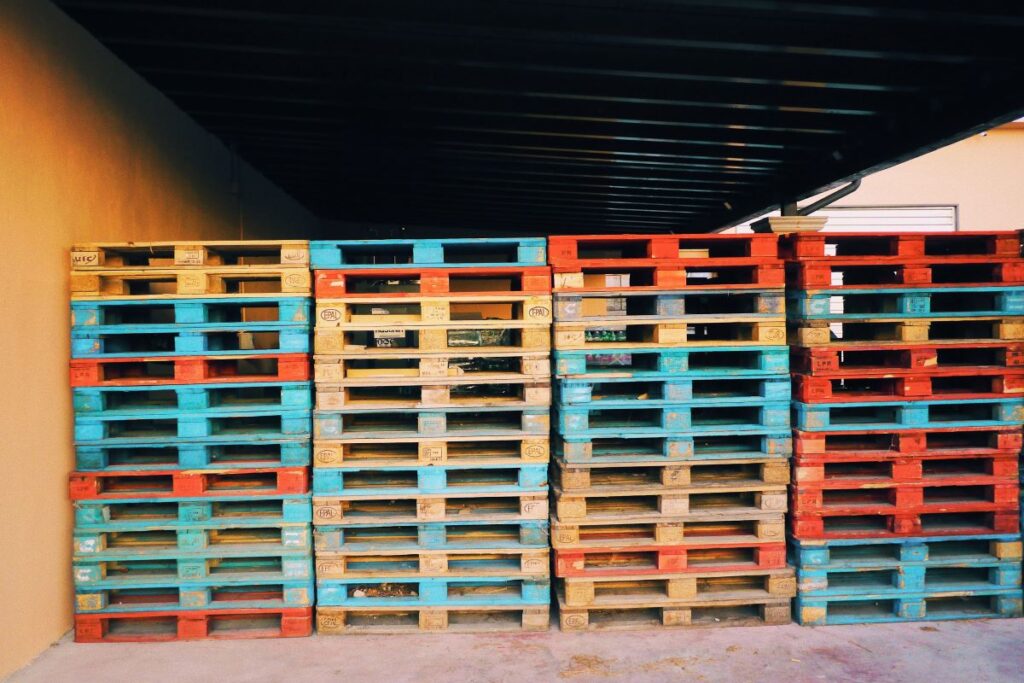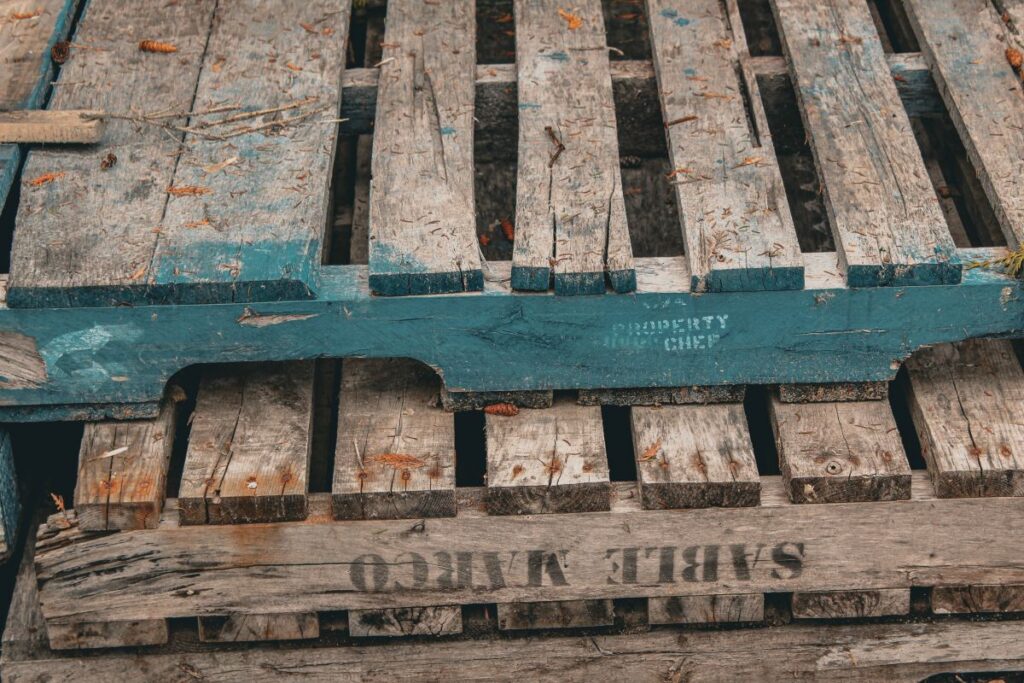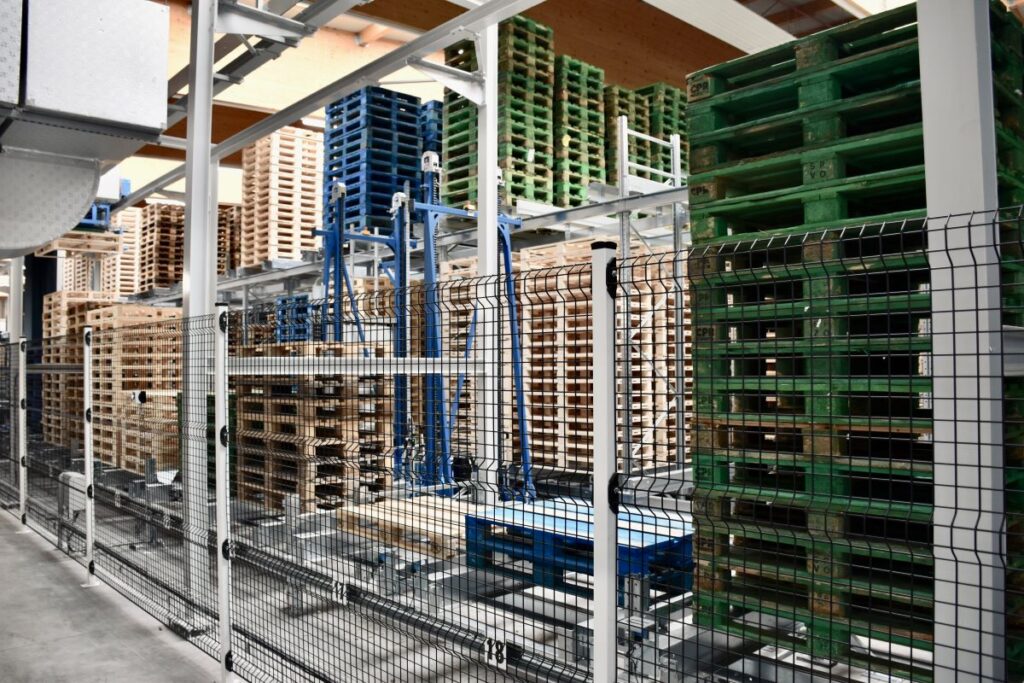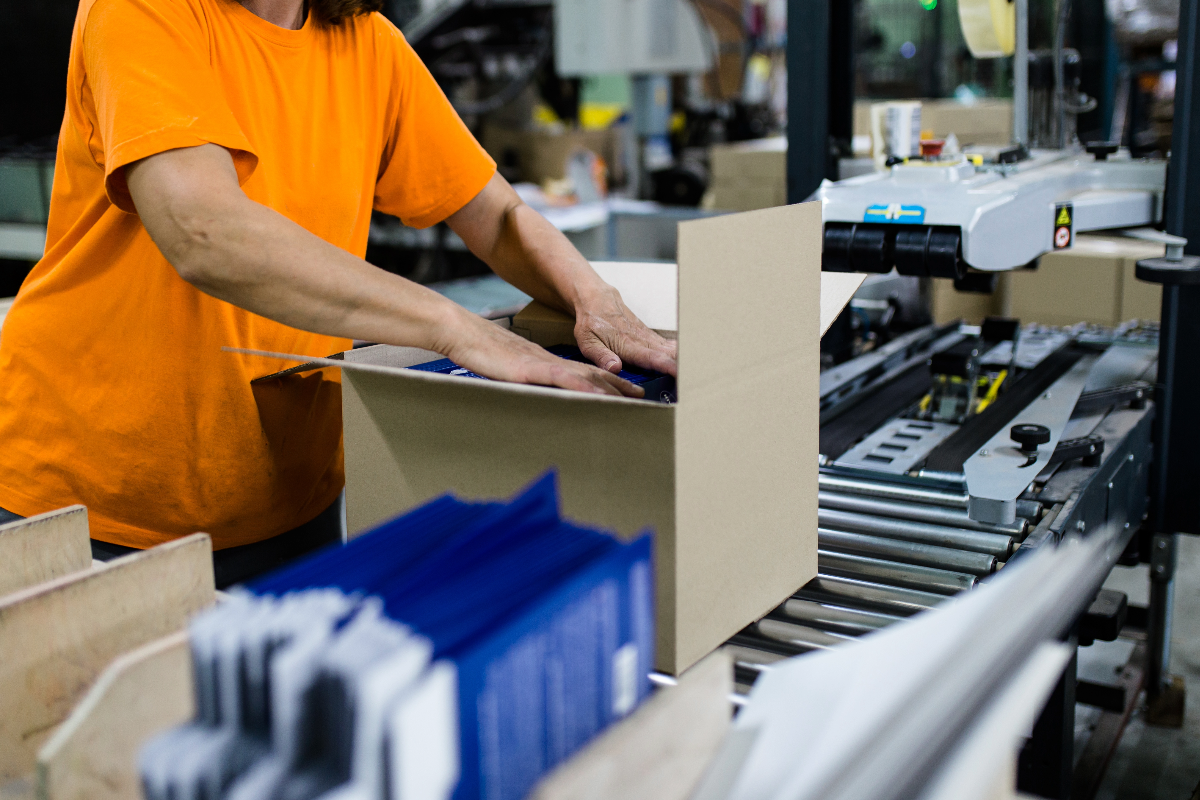BLOG
How to recycle the different types of pallets

There are over two billion pallets in circulation across the world. Pallets are used daily to help store and transport a variety of items. Here’s our guide to the different types of pallets and how they can be recycled.
Wood pallets
Most of the pallets in circulation are made from wood. A mixture of hardwoods and softwoods, such as oak and pine wood, are used to make pallets because of their availability and durability. While wood is a popular material for pallets, there are many different types.
UK Standard Pallets
The UK standard pallet measures at 1200x1000mm and are available with two or four entry points. These pallets are categorised into three different grades:
- UK Standard Grade 1 (or Grade A) can hold up to around one tonne in weight.
- UK Standard Grade 2 (or Grade B) can hold up to 750kg
- UK Standard Grade 3 (or Grade C or Lightweight) can hold between 200kg and 500kg.
Euro Pallets
Euro pallets are slightly smaller than standard pallets. These are 1200x800mm and are the most common used pallet for transporting goods across Europe. They are made from the European Pallet Association creates euro pallets. You can usually identify these pallets by the ‘EPAL’ or ‘EUR’ quality marks on the side of the pallet. Like the UK Standard pallets, these can have two or four entry points.
Colour coded pallets
Some brands will colour code their pallets, so it is easy to identify who owns the pallets. Blue pallets are made by the company CHEP. Additionally, pallets may also be coloured red. These pallets are created by the company IPP and hired out through their pooling system. Both pallets need to be returned to the company that produces them as they will then put them back into their own closed market.
Styles
Each of these types of pallets come in different styles depending on the type of activity they need to be used for. For example, pallets could have a winged design to help them carry more.
How can wooden pallets be recycled?
At Flame UK, we run a full pallet collection and recycling service. Once we’ve collected your pallets, they will be sent to a sorting facility to determine the quality of the pallets. If they’re good quality, they’ll be sent straight back out into the market. If the pallet is not of a good quality, they will be repaired by our team so they can go back out. Pallets that are beyond repair will be shredded and used for waste to energy. To find out more, check out our blog on the lifecycle of a pallet. Check out our video to learn more about how we recycle pallets!


Metal pallets
Metal pallets have become more popular over the years as they’re more durable than the wooden pallets companies have been using for years. They’re usually made from steel or aluminium and are usually made to the same specification as wooden pallets. Metal pallets are easier to clean and last longer, despite being able to hold heavier loads. With wood pallets, decaying or damage over time is more common, but metal pallets are not habitable for bacteria.
How can metal pallets be recycled?
Recycling metal is a great way to deal with metal pallets you have finished with. Scrap metal recycling has become incredibly popular because of the value of metals as raw materials and how easily they can be melted down. Flame UK can help you put an efficient scrap metal recycling system in place to help you improve your environment credentials and give a new life to your used metal pallets.
Plastic Pallets
Plastic pallets are an alternative to the regular wooden pallets. One of the advantages of using plastic pallets is their durability. Due to their makeup, plastic pallets have better contamination, odour, and corrosion resistance. They’re also more resistant to bacteria growth and pest infestation. Plastic alternatives to pallets are also more durable making them easier to be reused.
How can they be recycled?
Plastic pallets are made from a mixture of raw plastic and portions of recycled plastics, lowering the carbon footprint of the pallet. This type of pallet can be used multiple times and can endure many different shipping cycles or long service times before they wear out.
Cardboard pallets
Cardboard pallets, sometimes referred to as paper pallets or corrugated pallets, are made from paper board sheets, corrugated materials, and reinforced paper goods. One benefit of this type of pallet is their lightweight nature. Some cardboard pallets only weigh a third of what a wood pallet weighs. However, these pallets are still able to carry large loads. The corrugated material helps to increase the strength of the pallet. These pallets can come in the same sizes as most wooden pallets.
How can they be recycled?
Due to the cardboard used as the base of cardboard pallets, this type of pallet is the easiest to recycle. Even if the cardboard becomes wet or damaged, the recycling process can reduce the material into a pulp so that it can be made into a new pallet.
Contact us
Does your business have pallets that need collecting? Flame UK offers a full pallet collection and recycling scheme. Get in touch today to find out more.




